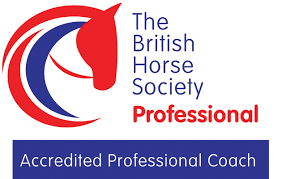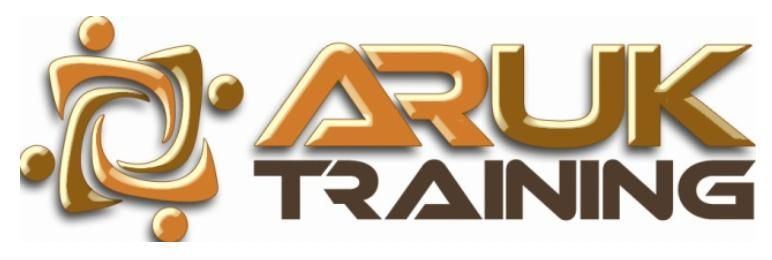
Critical Thinking for Effective Decision-Making and Problem-Solving
Course ID: 2507070101092EGI
Course Dates : 07/07/25 Course Duration : 5 Studying Day/s Course Location: London, UK
Language: Bilingual
Course Category: Professional and CPD Training Programs
Course Subcategories: Operations and Process Excellence
Course Certified By: * Projacs Academy
* Professional Training and CPD Programs
Certification Will Be Issued From :
KSA
Course Fees: £4,838.34
Vat Not Included in the price. VAT may vary depending on the country where the course or workshop is held.
Click to Pay
Date has passed please contact us Sales@e-s-hub.com
Course Information
Introduction
Effective decision-making and problem-solving are essential skills in both professional and personal contexts, yet they require a structured and analytical approach to achieve optimal outcomes. Critical thinking serves as the foundation for these abilities, enabling individuals to assess situations objectively, identify biases, and formulate well-reasoned solutions. Without strong critical thinking skills, decisions may be based on assumptions, misinformation, or cognitive biases, leading to suboptimal results and unintended consequences. This course is designed to equip professionals with the analytical tools and cognitive strategies necessary to enhance their decision-making capabilities.
A structured approach to decision-making involves understanding complex problems, evaluating multiple perspectives, and systematically analyzing information. Critical thinking encourages individuals to question assumptions, recognize logical fallacies, and apply reasoning techniques that lead to sound conclusions. By fostering a culture of evidence-based decision-making, organizations can improve efficiency, reduce risks, and enhance overall performance. The ability to think critically is particularly valuable in high-stakes environments, where decisions must be made under time constraints and with limited information.
Challenges in decision-making often arise from cognitive biases, emotional influences, and the overwhelming volume of information available in the digital age. Many professionals struggle to differentiate between reliable and misleading data, leading to errors in judgment. This course addresses these challenges by providing practical methodologies to assess credibility, distinguish between correlation and causation, and recognize manipulative rhetoric. By developing these skills, participants will be better equipped to navigate complex business environments, improve problem-solving efficiency, and mitigate risks associated with poor decision-making.
Beyond professional applications, critical thinking enhances communication, negotiation, and leadership abilities. Leaders who apply critical thinking principles can anticipate potential obstacles, evaluate alternative strategies, and implement solutions that align with long-term organizational goals. Moreover, in a rapidly changing global economy, adaptability and strategic foresight are crucial for maintaining a competitive edge. Organizations that cultivate a workforce skilled in critical thinking benefit from improved collaboration, innovation, and resilience.
This course also emphasizes the role of ethics in decision-making. Ethical dilemmas often require individuals to balance competing interests, assess moral implications, and justify their choices with sound reasoning. Participants will learn ethical decision-making frameworks that help them navigate complex situations with integrity and confidence. By integrating ethical considerations into their decision-making processes, professionals can foster a culture of accountability and trust within their organizations.
By the end of the training, participants will possess a refined ability to think logically, evaluate evidence critically, and apply structured reasoning to real-world challenges. This course offers a balance of theoretical foundations and practical applications, ensuring that learners can immediately implement their enhanced decision-making skills in their respective fields.
Objectives
By attending this course, participants will be able to:
Develop and apply structured critical thinking techniques to improve decision-making and problem-solving.
Identify and mitigate cognitive biases that may influence judgment and reasoning.
Analyze complex information effectively, distinguishing between reliable data and misinformation.
Utilize logical reasoning and argument analysis to assess the validity of conclusions.
Implement decision-making frameworks that enhance efficiency and reduce risk.
Improve communication and persuasion skills through clear, evidence-based reasoning.
Apply ethical decision-making principles to resolve dilemmas with integrity and fairness.
Strengthen problem-solving abilities by employing analytical and creative thinking strategies.
Who Should Attend?
This course is ideal for:
Business executives, managers, and team leaders responsible for strategic decision-making.
Professionals in finance, healthcare, law, and other fields requiring analytical and ethical judgment.
Project managers and operations specialists seeking to enhance problem-solving capabilities.
Entrepreneurs and business owners looking to improve risk assessment and decision-making processes.
Policy makers, government officials, and non-profit leaders involved in high-stakes decision-making.
HR professionals and educators aiming to foster critical thinking within organizations and learning environments.
Consultants and analysts tasked with evaluating complex data and providing recommendations.
Training Method
• Pre-assessment
• Live group instruction
• Use of real-world examples, case studies and exercises
• Interactive participation and discussion
• Power point presentation, LCD and flip chart
• Group activities and tests
• Each participant receives a 7” Tablet containing a copy of the presentation, slides and handouts
• Post-assessment
Program Support
This program is supported by:
* Interactive discussions
* Role-play
* Case studies and highlight the techniques available to the participants.
Daily Agenda
The course agenda will be as follows:
• Technical Session 08.30-10.00 am
• Coffee Break 10.00-10.15 am
• Technical Session 10.15-12.15 noon
• Coffee Break 12.15-12.45 pm
• Technical Session 12.45-02.30 pm
• Course Ends 02.30 pm
Course Outlines
Foundations of Critical Thinking and Decision-Making
Understanding Critical Thinking: Definition, Principles, and Importance
Cognitive Biases and Logical Fallacies: Identifying and Overcoming Barriers to Rational Thought
Decision-Making Frameworks: Rational, Intuitive, and Hybrid Models
Case Study: Analyzing Real-World Decision Failures and Successes
Day 2:
Problem-Solving Techniques and Logical Reasoning
The Problem-Solving Process: Identifying Root Causes and Structuring Solutions
Deductive vs. Inductive Reasoning: Applying Logical Analysis to Real Situations
Evaluating Arguments and Evidence: Differentiating Between Strong and Weak Reasoning
Hands-on Exercise: Solving Complex Business Scenarios Using Critical Thinking
Day 3:
Analyzing Information and Avoiding Decision Pitfalls
Evaluating Sources: Distinguishing Between Credible and Misleading Information
Risk Assessment and Decision-Making Under Uncertainty
Data-Driven Decision-Making: Using Analytics and Metrics to Support Conclusions
Interactive Discussion: Ethical Implications of Decision-Making in Business
Day 4:
Strategic Thinking and Innovative Problem-Solving
Developing Strategic Thinking Skills for Long-Term Planning
Creativity and Innovation in Problem-Solving: Techniques and Applications
Conflict Resolution Through Critical Thinking: Managing Disputes Effectively
Simulation Exercise: Applying Critical Thinking to a Real-World Business Challenge
Day 5:
Ethical Decision-Making and Application in Professional Settings
Ethics and Integrity in Decision-Making: Principles and Frameworks
Navigating Ethical Dilemmas: Balancing Conflicting Interests and Responsibilities
Communicating and Justifying Decisions: Persuasion and Influence Techniques
Final Case Study and Group Presentation: Demonstrating Critical Thinking Mastery



















































